Supreme Court blocks creation of religious charter school in Oklahoma
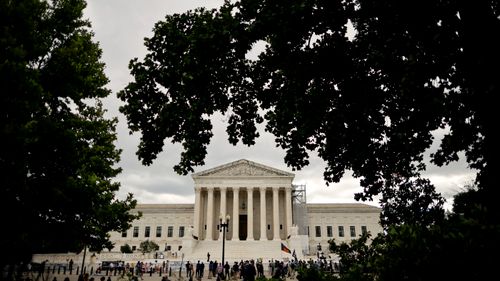
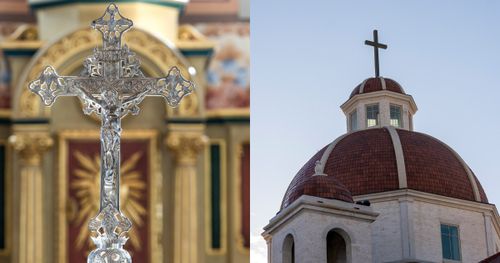
Oklahoma will not be able to launch the nation's first religious public charter school after the Supreme Court on Thursday deadlocked 4-4 in a major case on the separation of church and state. The decision by the evenly divided court means that a ruling by the Oklahoma Supreme Court that said the proposal to launch St. Isidore of Seville Catholic Virtual School violates both the federal Constitution and state law remains in place. As there was no majority, the court did not issue a written decision, and the case sets no nationwide precedent on the contentious legal question of whether religious schools must be able to participate in taxpayer-funded state charter school programs.
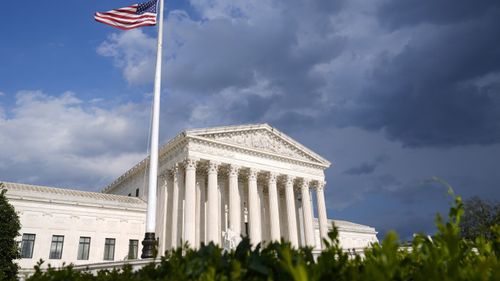
The Supreme Court on Thursday effectively ended a publicly funded Catholic charter school in Oklahoma, dividing 4-4. The outcome keeps in place an Oklahoma court decision that invalidated a vote by a state charter school board to approve the St. Isidore of Seville Catholic Virtual School, which would have been the nation’s first religious charter school. But it leaves the issue unresolved nationally. The one-sentence notice from the court provides an unsatisfying end to one of the term’s most closely watched cases.
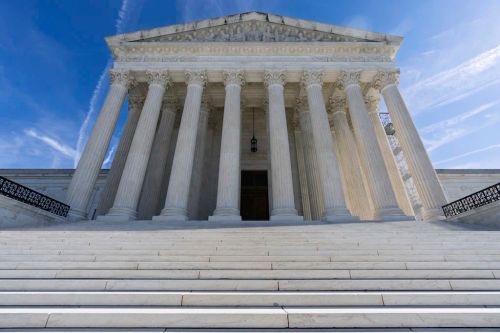
The Supreme Court was deadlocked on Thursday on whether to allow Oklahoma to establish the country’s first taxpayer-funded religious charter school. The court split 4-4, with Justice Amy Coney Barrett recusing herself from the proceedings, therefore affirming the Oklahoma Supreme Court’s ruling, which had blocked the approval of a charter for St. Isidore of Seville Catholic Virtual School because of its religious affiliation. The high court did not elaborate on the reason for its decision. The Oklahoma Supreme Court found in its ruling that a religious charter school would violate the state constitution.

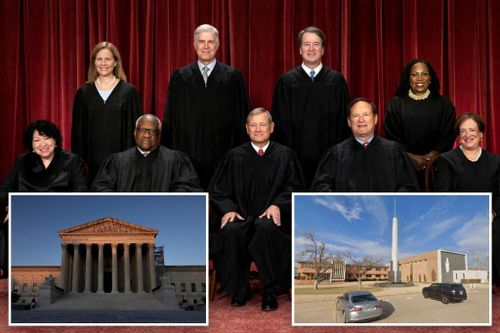
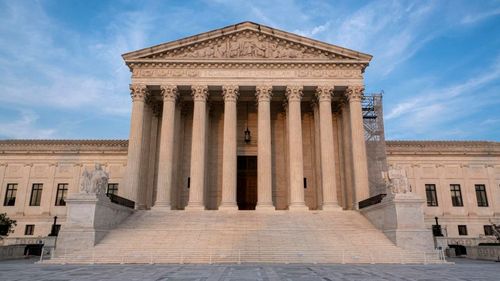
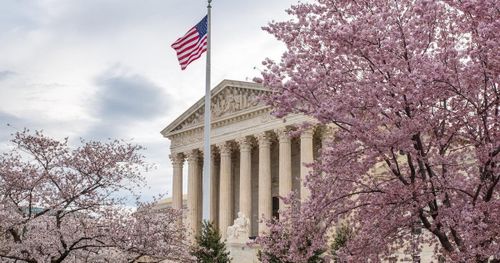
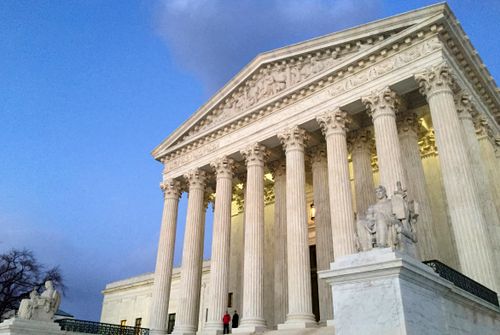
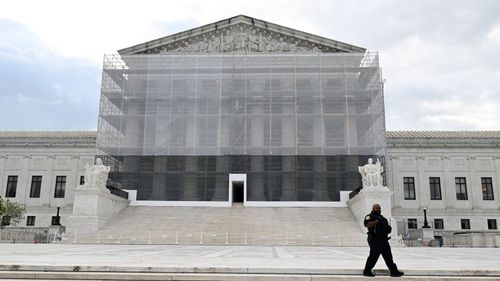
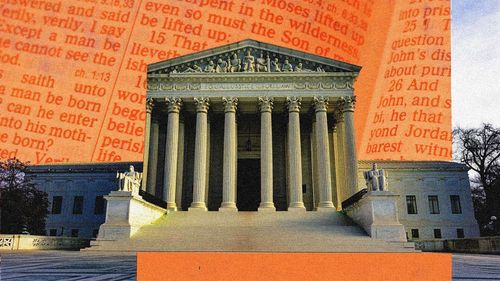
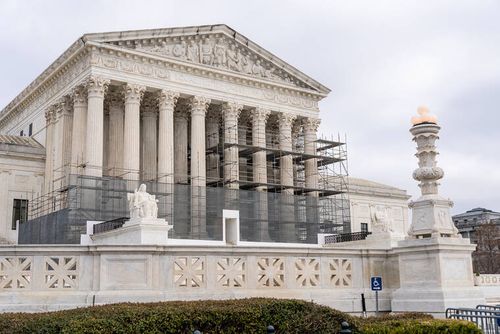
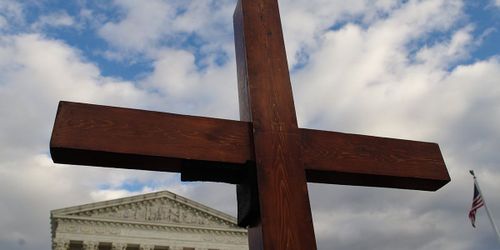
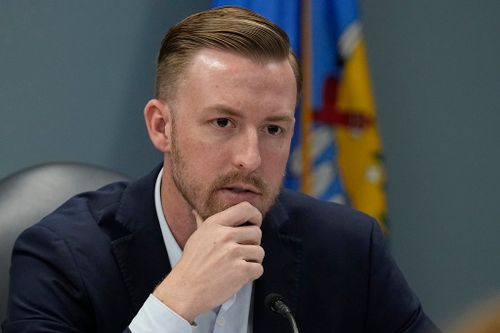

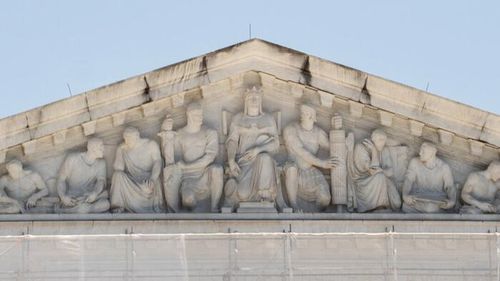

20h ago — The change stands in contrast to the office of Vice President JD Vance, which is still sending out transcripts for now.
 Washington Examiner
Washington Examiner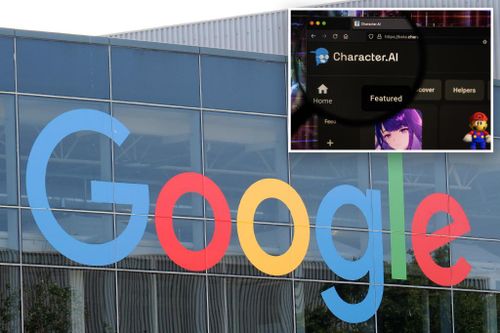
20h ago — Google reportedly faces a fresh Justice Department probe over whether it violated antitrust law through its partnership with artificial intelligence chatbot firm Character.AI.
 New York Post
New York Post
20h ago — Nearly two years after the Supreme Court overturned affirmative action, an Illinois medical school admits black and Hispanic students with lower average MCAT scores and GPAs than the average scores of white and Asian students it rejects, according to data shared with The Daily Wire.An analysis of the academic scores of students admitted into Southern Illinois School of Medicine from 2019-2024 reveals that blacks and Hispanics are admitted to the school with much lower scores than whites and Asians, figures obtained by Do No Harm show. These apparently different academic standards continue despite the Supreme Court’s June 2023 decision to strike down affirmative action, leading to concern that the university is watering down the importance of academics in admissions.This revelation comes as school leadership promises to “resist” and “fight back” against executive actions from the Trump administration cracking down on diversity, equity, and inclusion initiatives. A spokeswoman for the school told The Daily Wire that it was “committed to following the law and complying with the decisions of the Supreme Court.”Comparing average GPAs and MCAT scores, Do No Harm found that whites and Asians generally need to score significantly higher than blacks and Hispanics to be admitted into the school. The MCAT is the standardized test that all prospective doctors must take to be admitted into medical school.“In 2024, the average MCAT score of accepted Asians and whites (combined) was more than 4 points higher than that of accepted blacks and Hispanics (combined) — equivalent to a gap of about 14 percentile points. On GPA, accepted Asians and whites on average had 0.36 higher scores than accepted Blacks and Hispanics,” Do No Harm wrote in a summary of its analysis of the data. According to data from 2024, the average GPA score of students accepted into the Southern Illinois School of Medicine, broken down by race, was: Hispanic (3.45), black (3.50), white (3.85), and Asian (3.89). For the MCAT (best score being 528), the average scores were as follows: Hispanic (503.5 – 58th percentile), black (505.7 – 65th percentile), white (509 – 75th percentile), and Asian (512.8 – 85th percentile).“When comparing to the average scores of all accepted applicants, whites/Asians scored slightly above average while blacks/Hispanics scored significantly below average,” Do No Harm noted in its report.The 2024 data also reveal that whites and Asians who were rejected had average higher MCAT scores and GPAs than blacks and Hispanics who were accepted. The average MCAT score for whites/Asians rejected was 505.7, compared to the 505.2 of blacks/Hispanics accepted. For GPA, the average for white/Asians rejected was 3.66 compared to the 3.50 of blacks/Hispanics accepted.The data also show that 21 Asians with perfect GPAs were rejected in 2024.“Of the 24 black or Hispanic applicants admitted in 2024, 17 had MCAT scores lower than the average white or Asian rejected applicant; 13 had GPAs lower than the average white or Asian rejected applicant,” Do No Harm noted. “In 2024, no Asian admitted student had an MCAT score below 503. Meanwhile, half of black admitted students (9 of 18) had an MCAT score below 503.”These trends hold for every year from 2020 to 2024, with average rejection scores for whites/Asians being higher than average accepted scores for blacks/Hispanics, as Do No Harm noted that 2024 was “not an outlier.”“Blacks and Hispanics were admitted with lower MCAT and GPA scores than whites and Asians in each of the past five years at the school,” Do No Harm reported. “A five-year average of SIUSOM’s accepted applicants shows that there was a difference of 0.34 GPA points between the two racial groups.”The same could be found when comparing MCAT scores.Credit: Do No Harm.Paulette Dove, the senior counsel for Health Affairs for the Southern Illinois University system, said earlier this year that the affirmative action decision had a big impact on the school. “And then I just wanted to share one of the cases that had the biggest impact on SIU since I’ve been here, from a legal perspective, is the Students for Fair Admissions case that came out in 2023 and that was about looking at race and diversity and other issues in admissions and how that went about,” she said in a video shared with The Daily Wire, turning a faculty discussion on Trump’s executive actions.“And I want you to know that those lawsuits were started in 2014 and we saw an outcome from the U.S. Supreme Court in 2023,” she added. “So, there is time to work through all of these issues that are coming up now, even though they feel urgent, and we will do our best to stay on top of those urgent things, but my best suggestion to you is to really stay the course for the time being.”Ian Kingsbury, the director of research for Do No Harm, told The Daily Wire that he is skeptical that the university has complied with the Supreme Court’s decision in Students for Fair Admissions v. Harvard, saying that the school would be “pretty hard pressed to convince” someone that the admission data doesn’t reveal racial discrimination. On its website, the school lists a number of factors it considers in admission. These include extracurricular activities, employment and volunteer experience, and area of residence, “with preference given to central and southern Illinois residents and those from rural, inner-city, or disadvantaged backgrounds.”Kingsbury said that the school would have had to significantly deemphasize academics to get to its current situation.“I understand that academic qualifications alone aren’t the only thing that should determine your admission to medical school. But in any sane and reasonable world, they should be extremely important,” he said. “Essentially, they would have to establish that the non-academic criteria that they are using, that it just so happens that their black and Hispanic applicants are that much better than their white and Asian applicants along those criteria.” Southern Illinois School of Medicine has received millions of federal dollars, including a $3.2 million grant in 2023, to improve its facilities. The school also currently has multiple grants from the National Institutes of Health, including hundreds of thousands of dollars to study drug addictions.In January, President Donald Trump issued an executive order that directed his administration to ensure that any educational facility receiving federal dollars was complying with the Students for Fair Admission decision. Earlier this month, the Department of Health and Human Services sent a letter to medical schools warning them of “unlawful” admission practices that look at race in admissions.“It appears that many medical schools may have yet to come into compliance with the Supreme Court’s decision in SFFA,” the department wrote. “Medical schools found to be out of compliance with federal civil rights law may, consistent with applicable law, be subject to investigation and measures to secure compliance which may, if unsuccessful, affect continued eligibility for federal funding.”Kingsbury said that there was a cultural problem across much of taxpayer-funded academia where they thought they were above oversight.“This is a cultural problem in higher ed broadly, where they don’t feel that they’re responsive or accountable to any democratic authority,” he said. “It really is a problem across the academy. They think they should be running themselves without any concern for what the president of the United States says or what the Supreme Court of the United States says.”
 The Daily Wire
The Daily Wire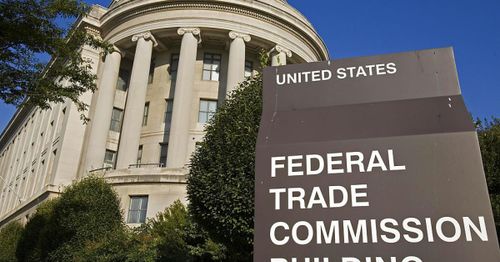
20h ago — "These threats won't work; we remain steadfast to our mission," Media Matters President Angelo Carusone said.
 Just The News
Just The News
Yesterday — Expert says Chinese operatives could be using Vancouver’s diaspora networks and smuggling routes to enter the U.S. from the north.
 yournews.com
yournews.com